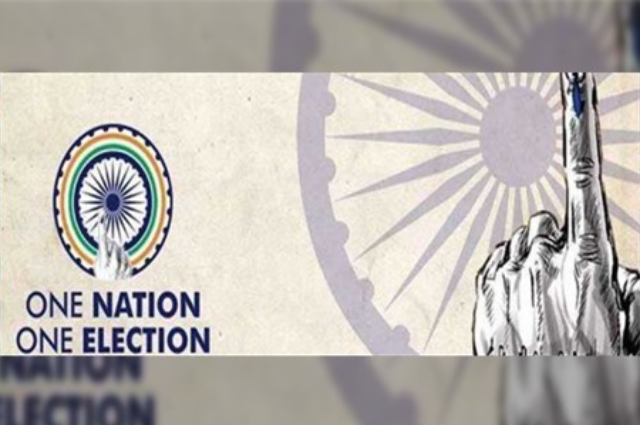During the recent urban local government election campaign in Tamil Nadu, AIADMK co-ordinator O. Panneerselvam and co-coordinator Edappadi Palanichamy said in several places that the Assembly elections would be held in 2024 on the basis of one country, one election. Prime Minister Narendra Modi has been emphasizing for the past several years that "one country, one election". In our country, it is not so easy to make it possible.
Elections were held in 2021 for the Union Territory of Pondicherry along with the states of Assam, Kerala, Tamil Nadu and West Bengal. The states of Punjab, Goa and Uttarakhand went to the polls on February 14 in a single phase. Manipur will go to polls in two phases till March 3 and Uttar Pradesh in seven phases till March 7. Himachal Pradesh and Gujarat are set to go to the polls this year.
Madhya Pradesh, Karnataka, Rajasthan, Telangana, Tripura, Meghalaya, Chhattisgarh, Mizoram and Nagaland are the nine states where assembly elections are scheduled for 2023 and Lok Sabha elections for 2024.
With the ruling BJP in power in several states, many, from Prime Minister Narendra Modi to Union ministers, have been actively campaigning to retain power there and face the 2024 elections with confidence.
As elections are held in several states each year, the governmental affairs of the ministers are affected. And during every election, billions of rupees of taxpayers' money are spent on voting. Although there are restrictions on the amount of money that political parties can spend on their election campaigns, the parties spend a lot of money during each election because no party follows the rules during the election.
During each election, tens of thousands of local police and paramilitary personnel are deployed on security duty. Thousands of teachers and civil servants are employed in the election process. There is no denying that public service is greatly affected by the implementation of the Code of Conduct for Elections.
It is a point to be noted that if the elections to the Assembly and the Lok Sabha held simultaneously manpower of local police, paramilitary personnel, civil servants, teachers and taxpayers money will not be wasted.
Until 1967, elections to the Assembly and the Lok Sabha were held simultaneously in our country. But since then, state governments have been dissolved from time to time, creating an environment for holding legislative elections.
Even in Tamil Nadu, the AIADMK government led by MGR, which took office in 1977, was dissolved in 1980 due to the peasant struggle. In 1989, the DMK won the election and Karunanidhi became the Chief Minister. His government was dissolved in 1991 and elections were held, citing law and order. How many years can elections not be held if such circumstances arise?
What if no party gets a majority in an election and the coalition government has no chance? A similar situation occurred in Bihar. Neither party won a majority in the February 2005 elections there. The alliance did not materialize. Therefore, re-election was held in October-November of the same year.
What if the central government and the state government fail in a no-confidence motion when the term is two or three years?
In Germany, even if a no-confidence motion is brought against the incumbent and he fails, the first can remain in power if another does not get a majority. But, there will be a situation where no bill can be passed. This will cause much trouble for the ruler.
If there is a simultaneous election in 2024, the term of office of some state governments should be extended; The tenure of some other state governments will be reduced. Many opposition parties, including the Congress, the Trinamool Congress, the DMK, and the Shiv Sena, are keen to oppose any plan by the ruling BJP in the Center.
Parliament was put on hold due to a lack of consensus on the issue of reservation for women in the legislature. Similarly, the possibility of a "one country, one election" program is impossible because of the strong opposition of many opposition parties.

